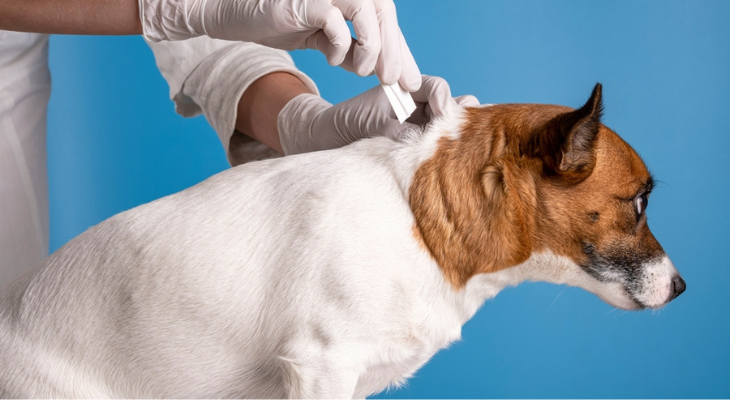🐾 The Importance of Deworming: Protecting Your Pet from Harmful Parasites
Your pet’s body provides the perfect environment for worms, making them vulnerable to parasite infestations that can lead to serious health issues. Deworming is a simple yet essential step in maintaining your pet’s well-being, preventing uncomfortable symptoms, and stopping the spread of worms.
🦠 How Worms Affect Your Pet’s Health
The most common worms in dogs and cats include roundworms, whipworms, hookworms, tapeworms, and heartworms. These parasites can cause a variety of health problems, such as:
✔️ Fatigue & Weakness – Worms consume essential nutrients, leading to low energy and lethargy.
✔️ Weight Loss – A lack of nutrients can cause unexpected weight loss despite normal eating habits.
✔️ Digestive Issues – Symptoms may include bloating, vomiting, and diarrhea.
✔️ Dehydration – Worm-related diarrhea can result in dark urine, dry nose, sticky gums, and weakness.
✔️ Breathing Difficulties – Severe worm infestations can lead to coughing and respiratory distress.
✔️ Coat & Skin Problems – A dull coat, hair loss, and excessive shedding may indicate worms.
✔️ Anemia – Hookworms and whipworms feed on blood, leading to pale gums, fatigue, and shortness of breath.
✔️ Swollen Abdomen – Large worm infestations can cause visible abdominal swelling.
✔️ Organ Damage – Heartworms can harm the heart, lungs, and other organs, potentially leading to death.
Although worms (or worm segments) may be visible in your pet’s stool, an absence of worms does not mean your pet is parasite-free. If your pet shows any of the symptoms above, consult your veterinarian immediately for a fecal exam and deworming treatment.
🐕 How Do Pets Get Worms?
Your pet can contract worms through several sources, including:
🔹 Contact with Feces or Contaminated Soil – Sniffing, licking, or stepping on infested feces or soil can introduce worm larvae into your pet’s body.
🔹 Eating Raw Meat – Consuming uncooked meat or infected prey (such as rodents) exposes pets to roundworms and hookworms.
🔹 Fleas – Tapeworm eggs hitch a ride on fleas, which can transfer worms when your pet grooms or bites at itchy skin.
🔹 Mosquito Bites – Heartworm larvae are transmitted when a mosquito bites your pet.
🔹 Birth & Nursing – Puppies and kittens can inherit worms from their mothers through the placenta or milk.
💊 The Importance of Deworming
Deworming medications eliminate existing parasites while preventing future infestations. Since all pets are at risk, routine deworming is a vital part of pet healthcare.
📌 Did You Know?
✔️ Studies from Kansas State University Veterinary Health Center show that 34% of dogs in the U.S. have worms.
✔️ In southern states, this number rises to 54% due to warmer climates fostering parasite growth.
📅 When Should Pets Be Dewormed?
🐾 Puppies & Kittens – Start deworming at 2-3 weeks old, then every two weeks until weaning.
🐾 Adult Pets – Deworm monthly or as recommended by your veterinarian.
🐾 Year-Round Protection – Regular flea control and heartworm prevention reduce the risk of re-infestation.
Even indoor cats are not completely safe—humans can unknowingly bring in worm eggs and fleas on their clothes and shoes.
🩺 Keep Your Pet Worm-Free!
Deworming and preventive veterinary care help your pet stay healthy, happy, and parasite-free. If it’s time for a check-up or deworming treatment, schedule an appointment with our clinic today! 🐾💙
📖 References:
- Kansas State University Veterinary Health Center – Zoonotic Potential of Common Cat/Dog Intestinal Parasites
- American Kennel Club – Deworming Dogs: What You Need to Know (March 14, 2024)
- American Animal Hospital Association – Parasite Control (October 9, 2019)
- PetMD – Deworming Kittens: Why It’s Important and When To Start (April 26, 2024)
- Cornell Richard P. Riney Canine Health Center – Roundworms







